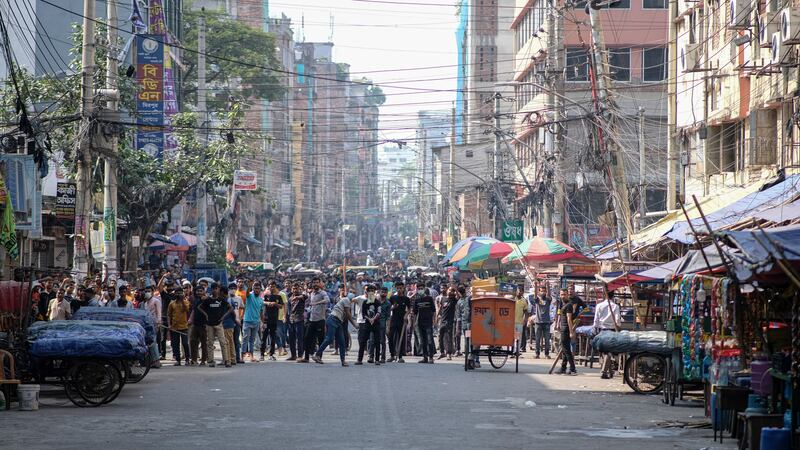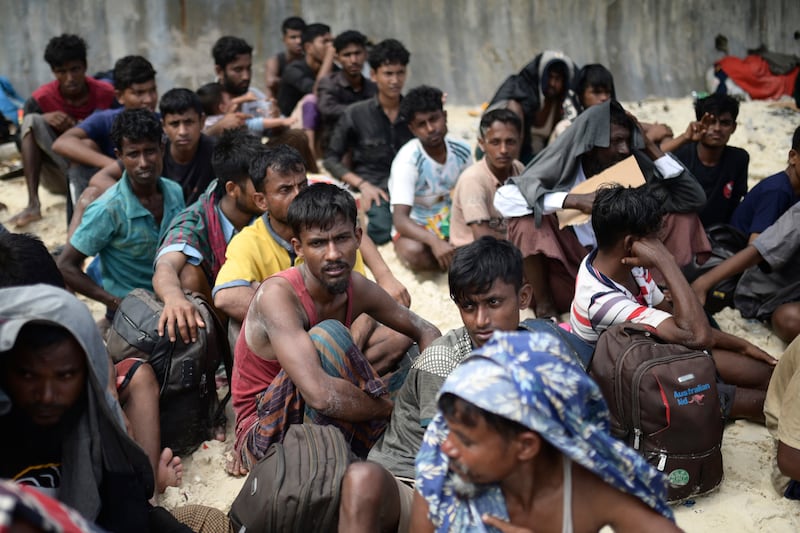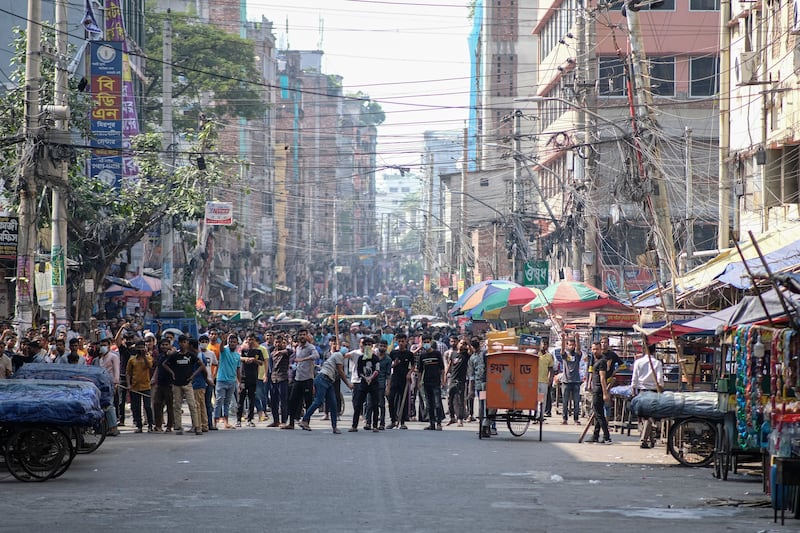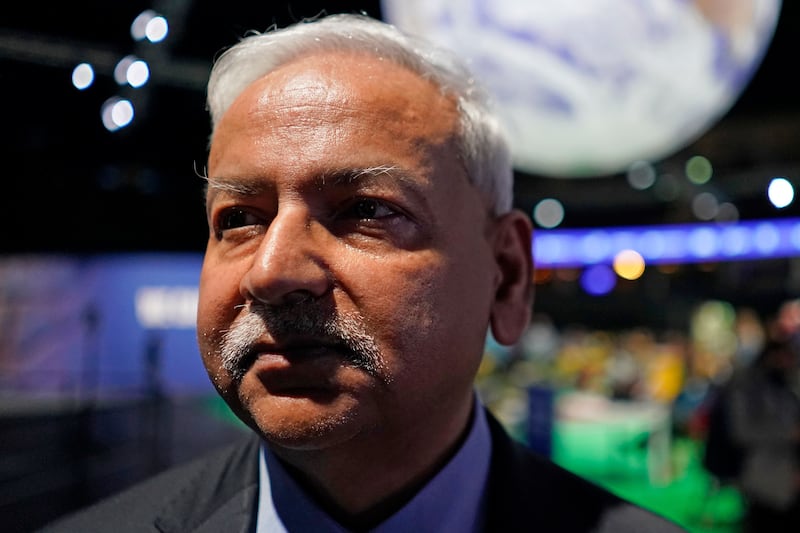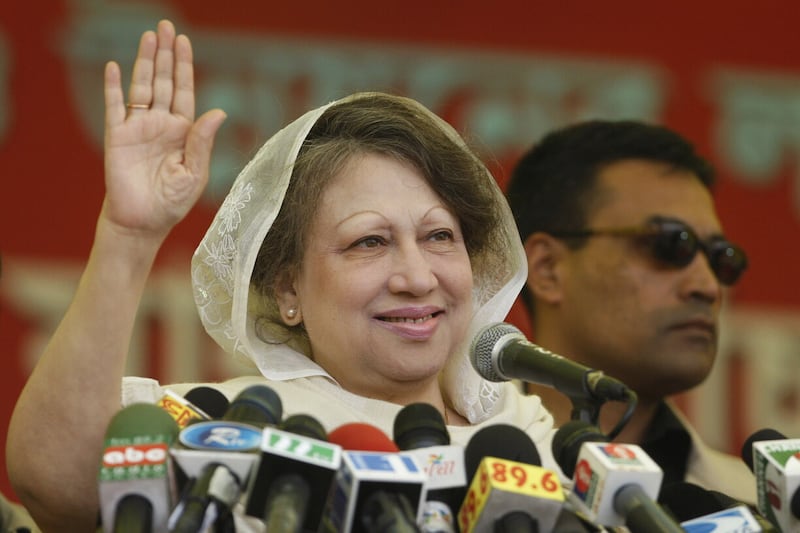Authorities in Bangladesh have announced a new salary structure for protesting garment factory workers, with a 56% increase in the monthly minimum wage to 113 US dollars (£91) from the previous 75 (£61)
But some workers’ groups rejecting the rise as too small.
State minister for labour and employment Monnujan Sufian announced the decision on Tuesday following a meeting of a government-formed wage board made up of representatives of factory owners and workers.
She said the new pay structure will take effect from December 1.
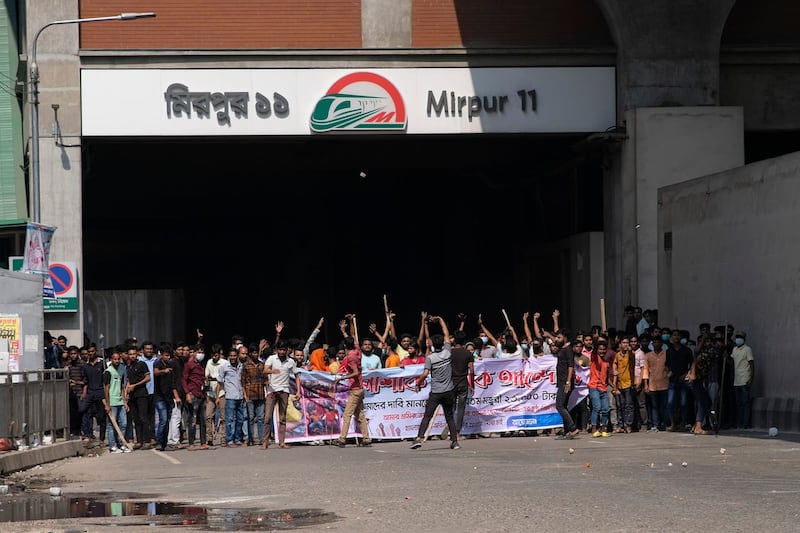
Critics say the influential factory owners should do more for the workers.
The decision came after weeks of violent protests by workers demanding a monthly minimum wage of 208 dollars (£168).
Workers have demonstrated in the streets, attacked factories, fought with police and burned vehicles.
The protests began after the Bangladesh Garment Manufacturers and Exporters Association offered to increase the monthly minimum wage by 25% to 90 dollars (£73).
The last increase in the minimum wage was announced in 2018.
Workers say they currently need to work overtime to make ends meet.
Kalpona Akter, president of the Bangladesh Garment and Industrial Workers Federation, said they were “extremely frustrated” over what she described as a paltry increase.
She said workers are struggling because the prices of daily commodities are rising.
“This is very frustrating. We can’t accept this,” she said.
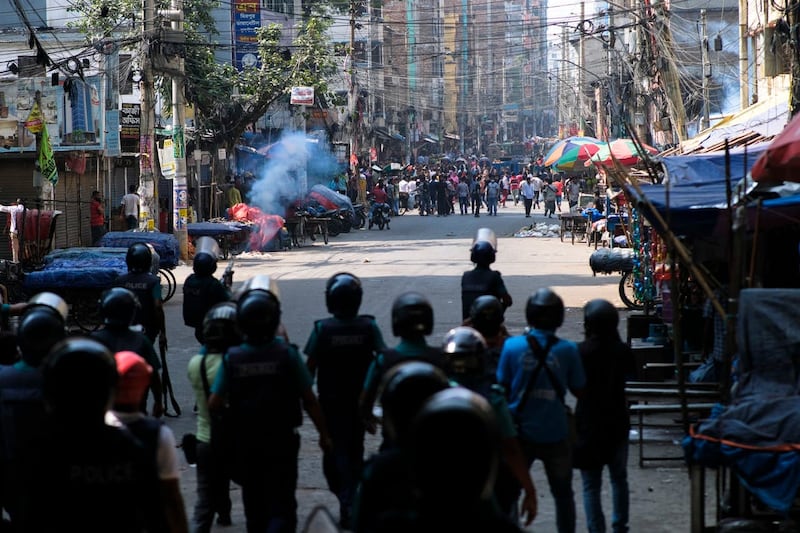
Bangladesh is the second largest garment-producing country in the world after China, with nearly 3,500 factories employing about four million workers, most of them women, according to the manufacturers’ association.
It says factory owners are under pressure because global brands in Western countries are offering less than before.
Owners argue that production costs have also increased because of higher energy prices and transport costs.
Bangladesh annually earns about 55 billion dollars (£44.4 billion) from exports of garment products, mainly to the United States and Europe. The country is also exploring new markets such as Japan, China and India.
